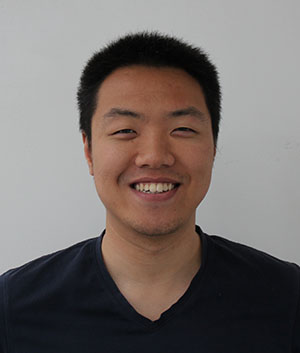Congratulations on your graduation PhD Lei Shi
CONGRATULATIONS ON YOUR GRADUATION
Lei Shi from China came to KTH School of Information and Communication Technology for master studies. There after he was enrolled as a PhD student at the Communication Systems department. Now he has defended his PhD thesis 'Efficient Spectrum Utilization of UHF Broadcast Band'.

Where are you from and where did you study before coming to KTH?
– I come from China and I was studying Electrical Engineering in the University of Electronic Science and Technology of China.
What is your topic and why did you choose it?
– My subject is about the efficient utilization of UHF broadcast band, which is about resource and spectrum allocation for different wireless services. I have chosen this subject partly because I find the question itself intellectually challenging and it's different from other typical research questions in wireless. Another reason is because this subject has a close relation to the regulation and the real world situation, which means my findings on this subject would be easier to create visible impact on the regulation policy and the future of the industry.
Describe your topic in short.
– First of all we must understand that spectrum is a limited natural resource and it is like real estate: ‘location’—frequency range matters. UHF broadcast band is probably the best spectrum band for mobile coverage, but currently it is allocated to TV broadcast service. However the trend is people spent less time in front of the TV screen while watching more videos on mobiles and tablets, driving up the wireless broadband traffic. Operator need more spectrum to sustain the growth of network capacity, and we are looking at the possibilities of getting that extra spectrum from UHF band.
Tell us something about your results.
– Our results suggest that there is a considerable potential in the UHF band for sharing between TV and mobile broadband service. The resource allocation or the sharing mechanism is however very much dependent on the developing trend of TV or video consumptions in the coming years.
What will the future bring for your research topic?
– Eventually I foresee a future where TV network as we know today won’t exist anymore. Most of the radio spectrum (including UHF band of course) would be allocated to mobile broadband network. Different types of services, including video services, will be provided on top of it. This process of reallocation spectrum will probably be slow because of the entrenched interests in TV industry. But the regulator will slowly push forward this agenda as we are already seeing effort from the European Commission.
What are your plans for the future?
– As I am enrolled in the EIT ICT doctoral program for Entrepreneurship and Innovation, I will have another year of student life. First a three months research visit to Orange Lab in Paris, then another three months in Ericsson Eurolab in Aachen. Finally a six-month project on business development exercise based on my research that will be carried out here at KTH.

